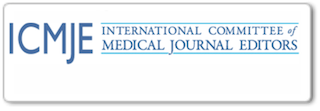The Effect of Community-Based Intervention on Self-Management of Hypertension Patients
Abstract
ABSTRACT
Introduction: Hypertension is one of the chronic diseases that can cause complications. Patients need a support system in the management of the disease. One of the ways to prevent hypertension complications is by using self-management. Community involvement is integrated into the program to have a social support system in performing self-management. Objective: This study aimed to determine the effect of a community-based intervention on the self-management of hypertension patients in one district in West Java. Methods: The study method is a quasi-experiment with pre and post-test control group design. The samples consist of 60 respondents taken by using the cluster sampling technique. The subjects were divided into control groups who were given routine treatment from primary health care and intervention groups who were given community visit groups about self-management for four weeks, including health education, counseling, and support. The data were collected using a questionnaire about hypertension self-management sub-variables which consisted of diet, smoking, physical activities, stress management, body weight control, alcohol, blood pressure monitoring, and medication. The data analysis techniques were descriptive and inferential statistics using a t-test. Results: The study results showed that the total score for self-management after the intervention was significantly higher than the total score before the intervention (M= 131,62; SD = 12,9; p=0.02). The intervention group's self-management full scores were considerably higher than the control group in the 4th week (p=0.005). Discussions: Community nurses can do one of the interventions by involving the community and forming hypertension volunteer groups that can act as educators to increase hypertension self-management.
ABSTRAK
Pendahuluan: Hipertensi merupakan salah satu penyakit kronis yang dapat menimbulkan komplikasi. Pasien membutuhkan sistem pendukung dalam pengelolaan penyakitnya. Salah satu cara untuk mencegah komplikasi hipertensi adalah dengan menggunakan manajemen diri. Keterlibatan masyarakat diintegrasikan ke dalam program untuk memiliki sistem dukungan sosial dalam melakukan manajemen diri. Tujuan: Penelitian ini bertujuan untuk mengetahui pengaruh intervensi berbasis komunitas terhadap manajemen diri pasien hipertensi di salah satu kabupaten di Jawa Barat. Metode: Metode penelitian yang digunakan adalah quasi-experiment dengan pre and post-test control group design. Sampel terdiri dari 60 responden yang diambil dengan menggunakan teknik cluster sampling. Subyek dibagi menjadi kelompok kontrol yang diberikan pengobatan rutin dari pelayanan kesehatan primer dan kelompok intervensi yang diberikan kelompok kunjungan masyarakat tentang manajemen diri selama empat minggu, meliputi pendidikan kesehatan, konseling, dan dukungan. Pengumpulan data dilakukan dengan menggunakan kuesioner tentang subvariabel manajemen diri hipertensi yang terdiri dari diet, merokok, aktivitas fisik, manajemen stres, kontrol berat badan, alkohol, pemantauan tekanan darah, dan obat-obatan. Teknik analisis data yang digunakan adalah statistik deskriptif dan inferensial menggunakan uji-t. Hasil: Hasil penelitian menunjukkan bahwa skor total manajemen diri setelah intervensi secara signifikan lebih tinggi daripada skor total sebelum intervensi (M= 131,62; SD = 12,9; p=0,02). Skor penuh manajemen diri kelompok intervensi jauh lebih tinggi daripada kelompok kontrol pada minggu ke-4 (p=0,005). Diskusi: Perawat komunitas dapat melakukan salah satu intervensi dengan melibatkan masyarakat dan membentuk kelompok relawan hipertensi yang dapat berperan sebagai edukator untuk meningkatkan self-management hipertensi.
Keywords
References
Bandura, A., (2004). Self Efficacy. In V. S. Ramachandran (Ed.), Encyclopedia of Human Behavior. Volume 4. pp 71-81. New York: Academic Press.
Bagong, S., (2005). Pendidikan Berbasis Komunitas: Prasyarat yang dibutuhkan Edukasi. Volume 1. No. 1. Jakarta: Prenada Media Group.
Flynn, S. J., Ameling, J. M., HillBriggs, F., Wolff, J. L., Bone, L. R., Levine, D. M., et al. (2013). Facilitators and Barriers to Hypertension Self-Management in Urban
African American: Perspectives of Patients and Family Members. Dove Press Limited Country of Publication: New Zealand. Agustus 2013. Volume 7. Pp 741-749.
Go, A.S., Mozaffarian, D., Roger, V.L., Benjamin, E.J., Berry, J.D., Borden, W.B. et al. (2013). Hearth disease and stroke statistics-2013 update: a report from the
American Heart Association. Circulation. Vol.127. no. 1. pp. e6-e245.
Jang, Y & Yoo, H (2012) Self-management programs based on the social cognitive theory for Koreans with chronic disease: A systematic review, Contemporary Nurse, 40:2, 147-159, DOI: 10.5172/conu.2012.40.2.147
Leung, C. M., Ho, G. K., Foong, M., Ho, C. F., Lee, P. K., & Mak, L.S. (2005). Small-group Hypertension Health Education Programme: A Process and Outcome Evaluation. Journal of Advanced Nursing [J Adv Nurs]. December; Volume 52 (6)., pp. 631-639.
Mubarak, W. (2012). Promosi Kesehatan untuk Kebidanan. Jakarta: Salemba Medika.
PERKI. 2015. Pedoman Tata Laksana Hipertensi pada Penyakit Kardiovaskular. Perhimpunan Dokter Spesialis Kardiovaskular Indonesia.
Puskesmas DTP Rajamandala. 2015. Profil Puskesmas DTP Rajamandala. Dinas Kesehatan Kabupaten Bandung Barat.
Riset Kesehatan Dasar. 2013. Riset Kesehatan Dasar. Kementerian Kesehatan Republik Indonesia : Badan Penelitian dan Pengembangan Kesehatan.
Saraswati, R; Ropi dan Sari, CWM. 2015. Pengaruh Program edukasi Berbasis Komunitas terhadap Self-management pada lansia Hipertensi di Puskesmas Gombong 2 Kebumen. Tesis. Tidak dipublikasikan.
Sari, C. W. M. & Santoso, M. B. (2014). Pengaruh Edukasi Diabetes Melitus Berbasis Komunitas terhadap Pengetahuan dan Self-Efficacy pada Kader di Kota Bandung.
Proceeding Seminar Nasional dan Workshop Pendekatan Keperawatan Holistik Berbasis Bukti untuk Mnejawab Tantangan Kesehatan Jiwa Terkini. Fakultas Keperawatan Universitas Padjadjaran Bandung; 20-21 Desember 2014
Ministry of Health. (2018). Basic Health Research. Retrieved from https://www.litbang.kemkes.go.id/laporan-riset-kesehatan-dasar-riskesdas/
Patel, P., Ordunez, P., Connell, K., Lackland, D., & Dipette, D. (2018). Standardized Hypertension Management to Reduce Cardiovascular Disease Morbidity and Mortality Worldwide. Southern Medical Journal, 111(3), 133-136. doi:10.14423/smj.0000000000000776
WHO. (2020). Hypertension. Retrieved from https://www.who.int/news-room/fact-sheets/detail/hypertension.
DOI: https://doi.org/10.17509/jpki.v8i1.44362
Refbacks
- There are currently no refbacks.
Jurnal Pendidikan Keperawatan Indonesia(JPKI) published by Indonesia University of Education. JPKI is licensed under a Creative Commons Attribution-ShareAlike 4.0 International License.
Office :
Nursing Department. FPOK UPI.
229, Dr. Setiabudhi Street. Bandung 40154
West Java , Indonesia
E-mail : jpki@upi.edu

_.png)
_.png)
_.png)











